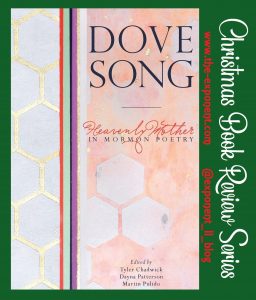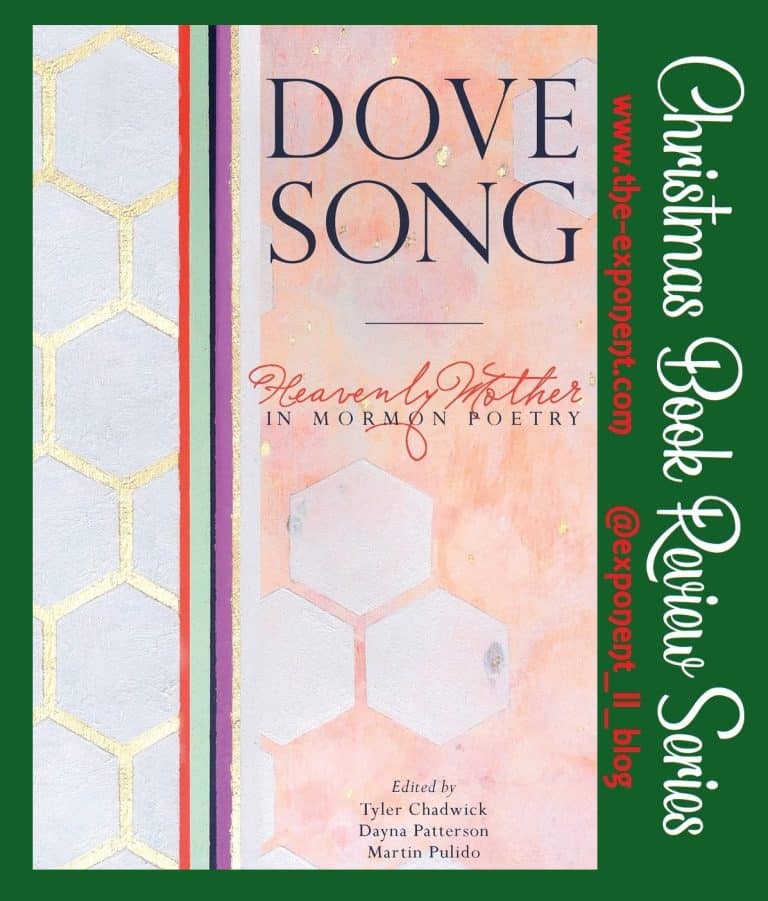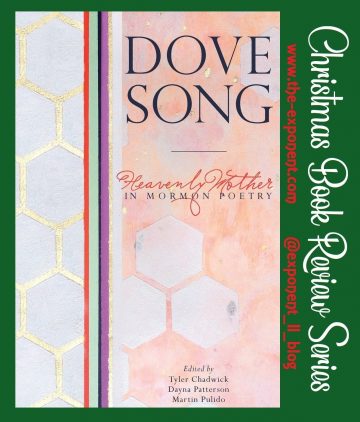Guest Post By Lanabean
Welcome to the Exponent Book Review Series and Cyber Monday Giveaway!
Over this week and ending on Cyber Monday, we will share our thoughts on books that we think you should consider as possible Christmas gifts for yourself and others! As in the past, everyone who comments on a post will be entered into the draw to win a copy of one of the books that we have reviewed! (Choice of electronic or hard copies in the domestic US, digital copies outside of this area). Your comment on each post gives you one entry (multiple comments on the same post will not give you additional entries.) This year, we are adding comments on the Book Review posts shared on the Exponent Facebook page in addition to comments on the blog.
Don’t forget to leave a comment!
For those on Goodreads, we invite you to become friends with the Exponent II on Goodreads! We have included all of our book reviews there, so you can see what we like (and don’t) all in one place!
 There has been no greater longing in my life as a member of the LDS Church than to feel true, divine womanhood. Hours upon hours of hearing from leaders and members alike that I have divine womanhood has not quenched that thirst at all because it has felt hollow and without meaning in its context. If the men are to be like God, about whom volumes are written, and women are to be something else entirely, then we must look to an invisible Goddess that we can’t see, know virtually nothing about, and to whom we are forbidden to pray (certainly not openly, where others can hear us). With so little explicitly said about Her, at least in terms of sheer volume relative to Her counterpart, we are forced to gather bits and pieces, opaque clues and flutters of inspiration, and quilt them together silently. She is still a very abstract concept, so it follows that so much of our hearts’ crying out for Her is expressed through the arts. That is usually how people try to make the abstract concrete and discernible.
There has been no greater longing in my life as a member of the LDS Church than to feel true, divine womanhood. Hours upon hours of hearing from leaders and members alike that I have divine womanhood has not quenched that thirst at all because it has felt hollow and without meaning in its context. If the men are to be like God, about whom volumes are written, and women are to be something else entirely, then we must look to an invisible Goddess that we can’t see, know virtually nothing about, and to whom we are forbidden to pray (certainly not openly, where others can hear us). With so little explicitly said about Her, at least in terms of sheer volume relative to Her counterpart, we are forced to gather bits and pieces, opaque clues and flutters of inspiration, and quilt them together silently. She is still a very abstract concept, so it follows that so much of our hearts’ crying out for Her is expressed through the arts. That is usually how people try to make the abstract concrete and discernible.
“Dove Song: Heavenly Mother in Mormon Poetry,” edited by Tyler Chadwick, Dayna Patterson, and Martin Pulido, gathers up these bits and pieces of abstraction about our Mother in Heaven, as composed by Mormon authors, and compiles them into a volume impressive in its length for a subject about which we hear so little. The poems are arranged by time periods, and as Dayna Patterson notes in the Foreword, some very clear patterns emerge. In the poems from the early Church period, Heavenly Mother is simply a fact. She lives with the Father and awaits our return. The poetry is not so much about Her as much as it takes for granted that She is there, too, filling an expected gender role of beauty and domesticity. The tone of these poems tends to be upbeat. Little is said about Her, but She’s there, all is well, and all will be well. There is then a dearth of significant mentions of the Mother for decades until the 1970’s when suddenly her imagery reemerges, but this time with far more longing. The poetry no longer takes her for granted, but pleads to know her, where she has been, and why She has been relegated to the shadows. The emotions are stronger, often filled with bits of sadness, or anger, or loneliness. As time progresses, the writing shows that She is not simply a quiet housewife in celestial spheres, but a tangible force full of humanity, in and around everything, experiencing all of the same joys and pains that we experience here. She is no longer God’s Wife, but God the Mother, every bit as influential and powerful and omnipresent as the God we know. Maxine Hanks wrote to the Mother, “You were there the whole time, animating life all around me,” (“Here the Whole Time,” pg 157). Still, these glorious images of Her usually carry with them the tinge of loss at Her absence in the official liturgy. There is so much longing written into the pages.
Reading through this volume was like eavesdropping on hundreds of prayers. Poetry is inherently intimate, thoughts distilled down to their purest form without the safety of extra prose to cover them. And really, by our own doctrine, these heart yearnings qualify as prayers: “For my soul delighteth in the song of the heart; yea, the song of the righteous is a prayer unto me, and it shall be answered with a blessing upon their heads” (D&C 25:12). Hopefully this volume will inspire others to record their prayer-thoughts to and about the Divine Mother, as well. More perspectives are needed to discover Her, and our mutual discoveries will expand what it means to us to be children of Gods. In “Invocation” (pg 155), David Allred wrote “May those who love truth and seek for justice, freedom, and light find that they are Wisdom’s disciples.” The pages of this book are full of attributes assigned to the Mother, worthy of emulation.
It was impressive to see the bravery of the authors opening up about what they have discovered on a very sacred, all but taboo subject. More remarkable to me personally, though, was how much of it mirrored my own unspoken thoughts and feelings. The feelings that I’ve had about who the Mother is and where’s she found and what role she plays was echoed over and over again in these poems. All those things that we’ve discovered but aren’t at present allowed to say over the pupit are shared in quiet verse and works of art, bound together in a book that’s not canonical, but will feel holy nonetheless.
This book will enlighten, and perhaps give you hope that She is revealing herself to Her children. My only regret about this book is that the beautiful artwork was not printed on color plates.
Lanabean is a tired mom who likes cuddling with her cats but spends most of her time in the car driving children around. She thinks longingly of chocolate and naps.
[amazonjs asin=”B07C7P8HYN” locale=”US” title=”Dove Song: Heavenly Mother in Mormon Poetry”]







9 Responses
I’m really interested in seeing cultural trends over the years- and to learn more about Heavenly Mother. I haven’t had a chance to read Mother’s Milk yet either, so that’s Lao on my list!
This book sounds divine!
I loved Mother’s Milk. It would be interesting to read others’ ideas about Heavenly Mother too.
What a treasure! I hadn’t heard of this, so thanks for bringing it to my attention.
Thank you for the review.
Sounds wonderful!
Have only read a few pieces, loved them all!
I am so happy that we are exploring our feelings about Heavenly Mother now rather than giving in to the idea that we’re showing her respect by never speaking her name.
I am so excited to read this book!